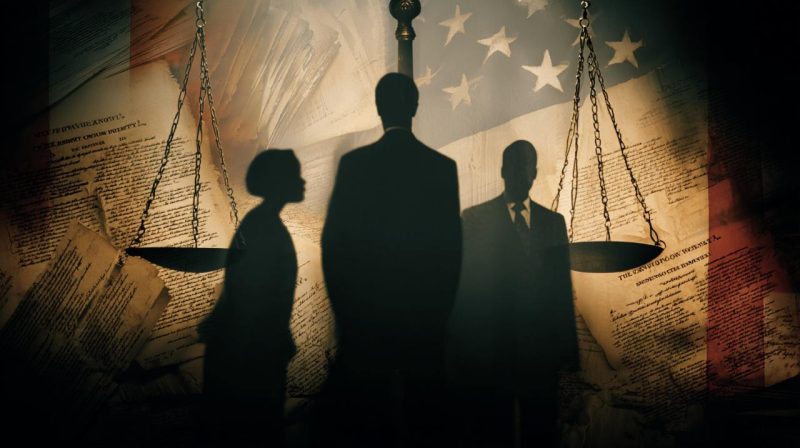
In a dramatic escalation of what critics call a campaign of political retribution, New York Attorney General Letitia James has become the latest Trump adversary to face criminal charges, joining former FBI Director James Comey in what appears to be a growing list of the president’s opponents facing federal prosecution. Meanwhile, former National Security Adviser John Bolton is reportedly next in line, with charges expected imminently.
The Mounting Legal Offensive
Letitia James: From Prosecutor to Defendant
New York Attorney General Letitia James was indicted Thursday by a federal grand jury in Virginia on charges of bank fraud and making false statements to a financial institution. The indictment, brought by U.S. Attorney Lindsey Halligan, alleges James falsely claimed a Norfolk, Virginia property would be her second residence to secure favorable loan terms, when she allegedly used it as a rental property instead.
“No one is above the law,” Halligan said in a statement following the indictment. “The charges as alleged in this case represent intentional, criminal acts and tremendous breaches of the public’s trust.”
James, who successfully prosecuted a civil fraud case against Trump that resulted in a $355 million judgment (later overturned on appeal), has forcefully denied the charges, calling them “baseless” and “nothing more than a continuation of the president’s desperate weaponization of our justice system.”
“He is forcing federal law enforcement agencies to do his bidding, all because I did my job as the New York State Attorney General,” James said in a video statement. “The president’s own public statements make clear that his only goal is political retribution at any cost.”
James Comey: Already Indicted
Former FBI Director James Comey, who was fired by Trump during his first term, pleaded not guilty on October 8 to charges of making false statements to Congress and obstructing a congressional investigation. The charges stem from his September 2020 testimony regarding whether he authorized leaks to the media.
The indictment was secured by the same prosecutor handling James’ case, Lindsey Halligan, who personally presented evidence to the grand jury. Comey’s trial is tentatively set for January 5, 2026.
“I have great confidence in the federal judicial system and I’m innocent. So let’s have a trial,” Comey said in a video statement after being charged.
John Bolton: Next in Line
Multiple sources now report that former National Security Adviser John Bolton is expected to be charged soon, possibly as early as next week. Bolton, who served under Trump before being fired in 2019 and later became a vocal critic, is reportedly under investigation for allegedly retaining classified information at his Maryland home.
The FBI raided Bolton’s home and Washington office in August, seizing multiple devices and documents. According to reports, prosecutors in Maryland believe there is sufficient evidence to bring charges against Bolton, unlike the resistance career prosecutors showed in the Comey and James cases.
Bolton’s attorney, Abbe Lowell, has maintained his client’s innocence, stating that any classified documents in Bolton’s possession dated back to the George W. Bush administration and would be “typical of those kept by a longtime government employee.”
The Pattern of Prosecution
The timing and circumstances surrounding these cases have raised serious concerns about the independence of the Department of Justice. Just weeks before the indictments began, Trump posted on Truth Social demanding action against his perceived enemies.
“What about Comey, Adam ‘Shifty’ Schiff, Letitia??? They’re all guilty as hell, but nothing is going to be done,” Trump wrote in a September post addressed to Attorney General Pam Bondi. “We can’t delay any longer, it’s killing our reputation and credibility. JUSTICE MUST BE SERVED, NOW!!!”
Shortly after this post, Erik Siebert, the acting U.S. Attorney for the Eastern District of Virginia, resigned after reportedly resisting pressure to bring charges against James and Comey. He was replaced by Lindsey Halligan, a former personal attorney for Trump with no prior prosecutorial experience, who quickly secured indictments against both.
Implications for the Rule of Law
Legal experts and Democratic officials have expressed alarm at what they see as the weaponization of the Justice Department for political purposes.
Senate Minority Leader Chuck Schumer called James’ indictment “what tyranny looks like,” adding: “President Trump is using the Justice Department as his personal attack dog, targeting Attorney General Tish James for the ‘crime’ of prosecuting him for fraud — and winning.”
The pattern of targeting Trump’s critics has drawn comparisons to authoritarian regimes where political opponents face legal persecution. Former federal prosecutors have noted that Trump’s public statements demanding prosecution of his enemies could undermine the cases themselves.
“This looks like a slapdash rush to the courthouse with one goal in mind: to achieve the president’s aims in charging a perceived political foe with a felony,” said Kevin Flynn, who served as a federal prosecutor in Washington, DC, for three decades, as quoted by the BBC.
Legal experts suggest that defendants like James and Comey may have grounds to argue selective or vindictive prosecution, especially given Trump’s public statements calling for their prosecution.
What’s Next?
As Bolton potentially faces imminent charges, and with investigations reportedly ongoing into other Trump critics including Senator Adam Schiff, the question of whether the judicial system can maintain its independence looms large.
James is scheduled to make her first court appearance on October 24, while Comey’s trial is set for January. Both cases will test not only the evidence against them but also the resilience of America’s judicial institutions against political influence.
For now, the president’s critics and legal observers are watching closely as the Department of Justice appears to be working through what some call Trump’s “enemies list” — raising profound questions about the separation of powers and the rule of law in America.
